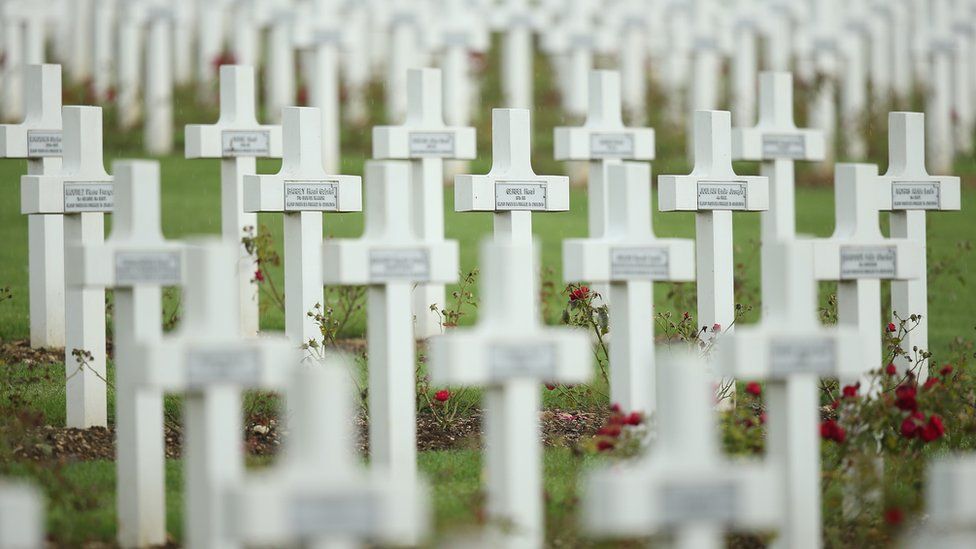French farm produce 'ruined by WW1 pollution'
- Published

Farmers in northern France have been ordered to destroy this year's produce because of pollution caused by World War One armaments left in the soil, according to French media.
Hundreds of tonnes of old ordnance are destroyed in France every year, much of it found in fields in the north-east.
L'Est Republicain newspaper says (in French) that metals and toxic compounds were found in soil.
Produce from seven farms has been destroyed, the newspaper reports.
Restrictions put in place by the French regions allow the ban of food produce if it comes from land contaminated by heavy metals.
The restrictions were put in place near Verdun in the Meuse region, the scene of some of the heaviest battles during WW1.
"Everything we produced went into the rubbish bin," one farmer told L'Est Republican. "The State has woken up, a hundred years later."
The mayor of a town close to one of the farms told Le Figaro (in French) that the decision to destroy the produce was made after a tonne of old artillery was discovered earlier this year. He told the newspaper he was nevertheless "surprised" by the decision to scrap the goods.
Some €150,000 ($170,000, £110,000) of milk has been destroyed, farmers say.
No-one from the Meuse regional government has yet commented.
More than a billion shells were fired during WW1, and an estimated 30% of them did not explode. Many are yet to be uncovered in north-east France, the scene of some of the biggest WW1 battles.
One French website that chronicles the work of bomb disposal teams says France destroys an average of 467 tonnes of old ordnance a year.
- Published12 May 2015